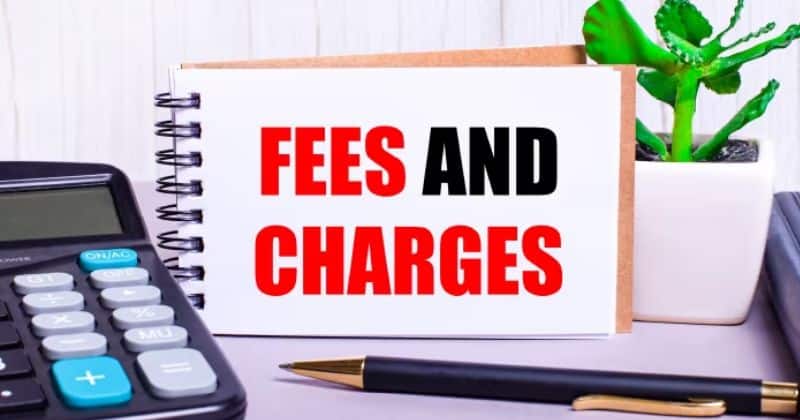How Much Do Debt Settlement Companies Charge In India?

Debt settlement has become a popular solution for individuals struggling with unsecured debts such as personal loans, credit cards, and other financial obligations. These services can help ease the burden by negotiating with creditors to reduce the amount owed, offering a more manageable payment plan, or even obtaining a lump-sum settlement at a fraction of the total debt. As more people turn to debt settlement companies for help, one of the most common questions is: How much do these companies charge for their services? This article aims to provide a detailed look into the fees associated with debt settlement companies in India, the factors that influence these charges, and how services like RupeeRelief can provide effective solutions. Debt settlement is the process in which a debtor works with a debt settlement company to negotiate with creditors or lenders to reduce the total amount owed. These negotiations typically aim to secure a one-time lump-sum payment for less than the full balance. Debt settlement is often pursued when individuals face financial hardship and are unable to repay their debts in full. While debt settlement can provide immediate relief, it is essential to understand that it does not eliminate the debt altogether. The debtor is still responsible for paying the agreed-upon settlement amount, but it will often be significantly lower than the original debt. It’s crucial to work with a reputable company to ensure that the process is fair and beneficial. Debt settlement companies in India typically charge fees in two main ways: One of the most common pricing models used by debt settlement companies is to charge a percentage of the total debt that has been settled. This fee structure is tied directly to the amount saved through the settlement. The percentage can range from 10% to 30% of the total amount of debt settled. For example, if a person owes ₹1,00,000 in unsecured debt, and the debt settlement company negotiates a settlement for ₹60,000, they may charge anywhere between ₹6,000 to ₹18,000 (10%-30%) as a service fee. This model has its advantages, particularly for people who may be in a financially difficult situation. It ensures that the company only earns a fee based on their success in reducing the debt. However, there are several things to consider when choosing this type of service: Some debt settlement companies in India charge a flat fee for their services, irrespective of the amount of debt being settled. This can sometimes make the service more predictable in terms of costs. A flat fee can vary significantly depending on the complexity of the debt situation, the number of creditors involved, and the negotiation work required. For example, a flat fee might range from ₹10,000 to ₹50,000, regardless of whether the person owes ₹50,000 or ₹5,00,000. It’s important to check whether the flat fee covers all services or if there are any additional charges for handling multiple creditors or extensive paperwork. While less common, some companies may ask for an upfront fee before beginning any work. This fee is typically charged as a retainer for the company to start negotiating on behalf of the client. However, upfront fees should be approached with caution, as there are instances of unscrupulous companies charging large sums upfront without delivering results. It is recommended to avoid companies that demand large upfront fees, as these can sometimes be a red flag for fraudulent activity. A good debt settlement company, such as RupeeRelief, ensures that their charges are transparent and clearly outlined after understanding the client’s situation. Apart from the percentage-based or flat-fee models, other factors can influence how much debt settlement companies charge: The larger the debt, the more negotiation work will be required, which could lead to higher fees. However, larger debts may also attract better settlements, thus reducing the overall amount to be paid. If a person has multiple creditors, the settlement company may have to conduct negotiations with each one separately. This often results in higher service fees, as more time and effort are required to manage multiple negotiations. Some debts may require more intricate legal or financial strategies to settle. In such cases, the company may charge additional fees to cover the work involved in crafting a more tailored solution. This is particularly true for individuals with complicated financial histories or disputes with creditors. Reputable and experienced debt settlement companies typically charge more for their services. They have established track records, access to more resources, and the expertise required to negotiate the best possible settlement for their clients. However, their experience and reputation also often result in a higher success rate, ensuring that the investment made in their services is worthwhile. The type of debt being settled can also influence the fee. Secured debts, such as home loans or car loans, might not be suitable for traditional debt settlement services. Debt settlement is primarily used for unsecured debts, including credit card debt and personal loans. Companies focusing on these areas may charge different rates depending on their specialization. RupeeRelief stands as a prime example of a debt settlement service provider committed to offering transparent and affordable solutions. By focusing on unsecured loans and credit card debts, RupeeRelief provides personalized debt settlement services that are structured to fit the financial capacity of individuals. For example, instead of focusing on arbitrary upfront fees, RupeeRelief works with clients on a performance-based model, ensuring that fees are only charged when successful settlements are reached. This model eliminates the risk of paying for a service that doesn’t deliver, which can be crucial for people already in a financial bind. The team at RupeeRelief is well-versed in working with multiple creditors, negotiating favorable settlements, and ensuring that clients are fully informed about the process and fees involved. Their approach is customer-centric, with a strong emphasis on providing individuals with clear, transparent solutions for their debt-related challenges. Debt settlement companies in India typically charge fees based on a percentage of the total amount of debt settled, with charges ranging between 10% and 30%. Some companies may also offer a flat fee structure. It’s important to understand all costs involved before engaging with a debt settlement service to ensure transparency and avoid hidden charges. The complexity of the debt, the number of creditors, and the experience of the company can all influence the final charges. For individuals looking for a reliable and affordable debt settlement solution, RupeeRelief offers services that prioritize customer needs, ensuring that fees are only paid when a settlement is successfully achieved. Whether dealing with credit card debts or personal loans, choosing the right debt settlement service can provide the relief needed to regain financial stability.Understanding Debt Settlement
How Debt Settlement Companies Charge in India
1. Percentage of Settled Debt
2. Flat Fee
3. Upfront Fees
Other Factors Influencing Fees
1. Amount of Debt
2. Number of Creditors
3. Complexity of Debt
4. Reputation and Experience of the Company
5. Debt Type
How RupeeRelief Can Help
Conclusion

